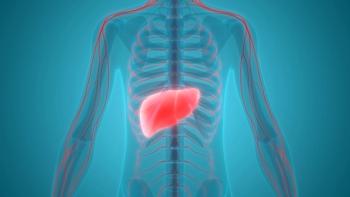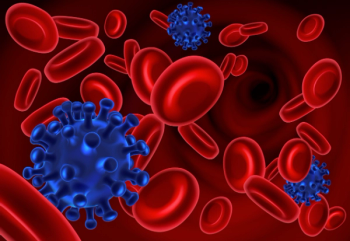
A huge cost savings could be generated with the success of a hepatitis C vaccine.

A huge cost savings could be generated with the success of a hepatitis C vaccine.

According to the US Department of Health and Human Services Office of Minority Health, Asian Americans are 40% more likely to be diagnosed with diabetes and 60% more likely to be diagnosed with renal disease compared to non-Hispanic whites.

The finding raises the potential for repurposing available drugs as COVID-19 antivirals for cases in which a vaccine is not practical or effective, according to RPI chemistry and chemical professor Gaetano Montelione.

Patient and provider organizations urge the Department of Health and Human Services and the Biden administration to enact policies and protections that improve prescription drug affordability for people in the United States.

Bariatric surgery can significantly reduce the risk of cancer—and especially obesity-related cancers—by as much as half in individuals with severe obesity and nonalcoholic fatty liver disease (NAFLD), according to a study by researchers at Rutgers Robert Wood Johnson Medical School's Center for Liver Diseases and Liver Masses.

Pharmacists can learn how to adequately inform patients about therapeutic options that are available as a method to improve access to care.

According to Senhwa Biosciences, the study’s findings indicate a clinically meaningful improvement in progression-free survival (PFS) (P

The study was done in an effort to help quickly develop pharmaceutical treatments for COVID-19 by repurposing existing drugs known to effectively treat other viral diseases, according to the study authors.

Researchers have identified the role of a protein involved in the progression of hepatitis C virus (HCV) infection that has demonstrated a potential new avenue for treatment.

Clinicians should be aware of children who are likely to have protracted illness and require hospitalization stemming from norovirus acute hepatitis, according to the results of a recent study.

Successfully implementing HIV and hepatitis C testing at drug detoxification centers could help identify and link patients to care, but would require that the test results are available to nearby health care facilities.

The coronavirus disease 2019 pandemic has presented pharmacy students with an opportunity to develop new skills that former students never had the opportunity to develop.

Top news of the week from Pharmacy Times®.

Regular testing for hepatitis C virus has proven more effective than targeted testing.

Which product caused hepatic failure?

Organ transplants from seropositive donors carry a high risk of infection from the transplanted organ.

Although lifesaving drugs became available around 1998 to treat hepatitis C, they were expensive, which limited access for some patients.

The 2 most common, recommended, and simplified treatments for HCV are glecaprevir/pibrentasvir (Mavyret) and sofosbuvir/velpatasvir (Epclusa).

The drug was previously approved to treat HCV in adults

http://www.gilead.com/~/media/files/pdfs/medicines/liver-disease/vemlidy/vemlidy_pi.pdf?la=en

The immunogenicity and safety of hepatitis B surface antigen (HBsAg)/CpG 1018 was assessed in patients with diabetes aged 60 to 70 years.

The study evaluated lymphoma characteristics and outcomes in hepatitis C virus-associated B-cell non-Hodgkin lymphoma in African American patients.

Chronic hepatitis B virus (HBV), which affects an estimated 862,000 individuals in the United States, is caused by long-term infection with the virus and can lead to serious liver damage.

Expanded access to direct-acting antiviral drugs are vital to achieve elimination targets set by the World Health Organization for hepatitis C virus infections.

Transplanting organ from patients infected with hepatitis C could greatly expand the number of kidneys available and reduce wait times.